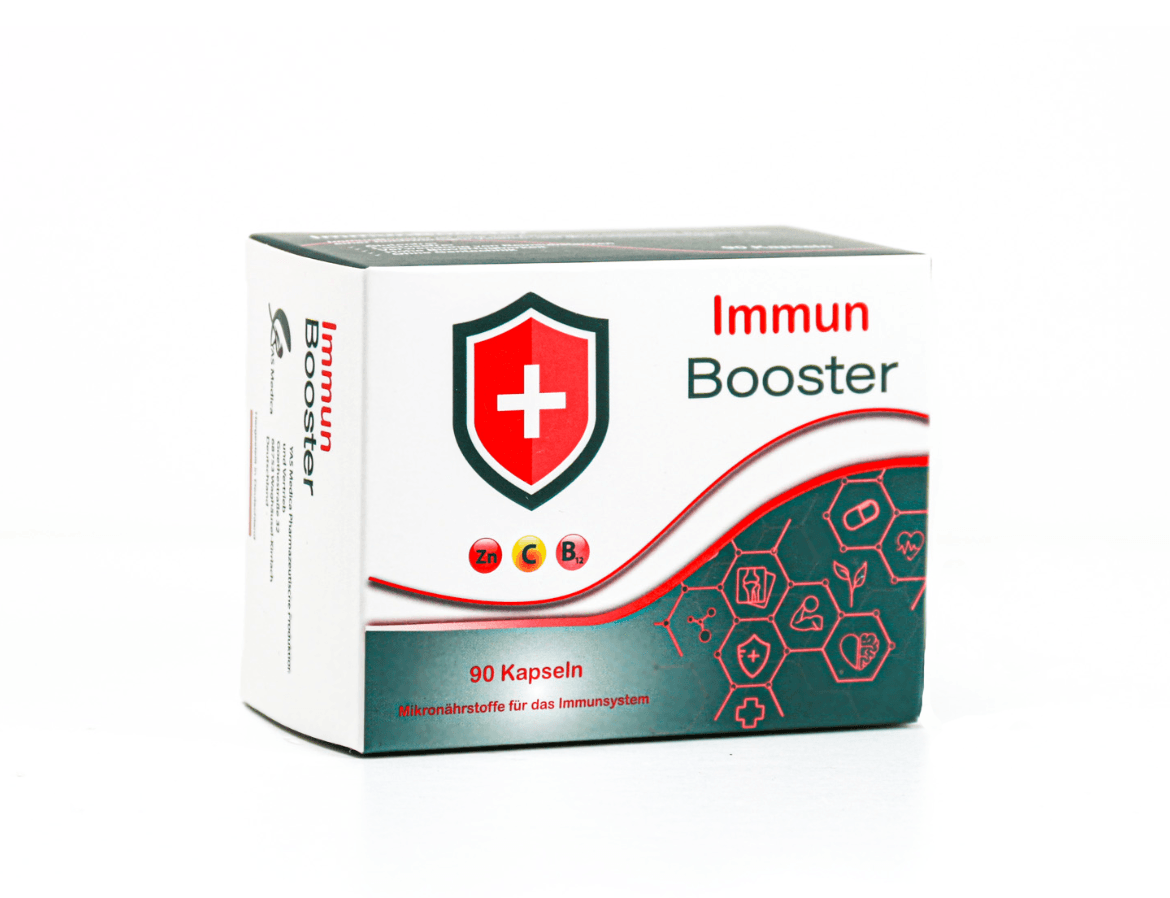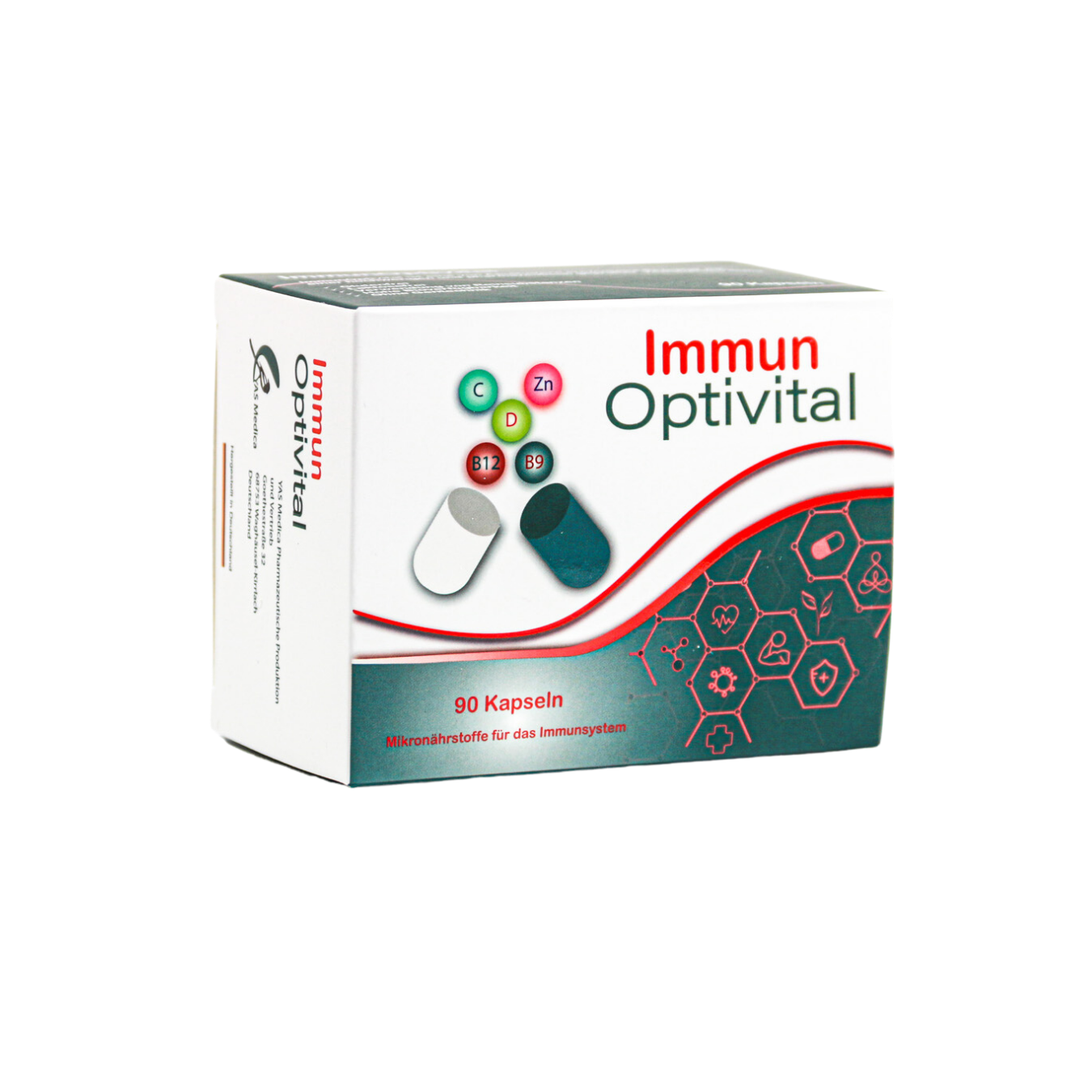In this post, we explore the profound effects of chronic stress on our nervous health.
We explore the diverse health problems that can be caused by prolonged stress. Ranging from anxiety to neurological diseases.
But there is hope!
Among other things, a targeted diet can have a significant impact on stress levels and your nervous health. Proper and targeted nutrition has transformative power to counteract stress.
What does stress mean from a physiological point of view?
Nervousness and restlessness is a natural reaction of the body to stressful situations. At such moments, the body releases biochemical substances to deal with it. However, some of these substances, especially free radicals, can be harmful when present in excessive amounts. Diseases of the nervous system can be the result.
This condition is called oxidative stress and it can cause serious health problems. To counteract oxidative stress, a healthy diet is crucial. A targeted diet can help reduce the harmful effects of free radicals. A conscious and balanced diet contributes to maintaining a healthy nervous system.
What Does Persistent Nervousness Mean for Nerve Health?
Persistent nervousness can have a negative impact on nerve health. When someone is chronically nervous, the nerves can become overly stimulated and stressed. This can lead to an increased release of stress hormones like cortisol, which can be damaging to nerves in the long run.
Overactivity of the nervous system can be the result of chronic stress. This can lead to both neurological and physical symptoms. Neurological symptoms can include increased irritability and sensitivity. The physical complaints often manifest themselves as a sleep disorder, tremors or muscle tension.
Long-term stress on the nerves can increase the risk of neurological diseases such as burnout syndrome, depression, migraines, forgetfulness or Alzheimer's dementia.
How to effectively manage chronic stress and nervousness?
Effective management of chronic stress and nervousness depends on various factors. The effects and the level of suffering can be subjectively perceived differently.
However, there are aspects that you can influence yourself to counteract the stressful everyday life.
Identify the root cause : Find out the root causes of your stress and nervousness. This can help to find targeted solutions.
Use techniques to cope with stress: Learn different techniques to counteract stress. These can be relaxation exercises, breathing techniques, meditation or yoga.
Healthy Lifestyle: Maintain a healthy lifestyle that includes adequate sleep, regular exercise, and a balanced diet. A healthy physical condition can help to manage stress effectively.
What role does nutrition play in maintaining healthy nerves and psyche?
A balanced diet with plenty of antioxidants, B vitamins and magnesium can protect the central and vegetative nervous system and reduce the negative effects of stress.
B vitamins, for example, help promote a healthy balance of neurotransmitters and strengthen the immune system. Eating a healthy diet can help keep blood sugar levels stable and help fuel the brain.
Which micronutrients play a crucial role in the health of our nerves and are active against nervousness?
Vitamin B1:
Adequate thiamine levels are essential to ensure smooth signal transmission in the nervous system. A lack of vitamin B1 can lead to neurological disorders, including nerve pain (polyneuropathy), reduced memory performance.
In order to maintain nerve health, it is important to ensure a balanced diet with an adequate intake of foods rich in vitamin B1. Vitamin B1 is found in foods such as whole grains, legumes, nuts, seeds, beef and fish. In some cases, taking dietary supplements or vitamin B complexes may also be advisable. Especially in people with an increased risk of vitamin B1 deficiency.
Vitamin B2:
Vitamin B2 is involved in energy production and helps convert food into energy needed by nerve cells. It is also an important component of enzymes required for metabolism and nervous system function.
In addition, vitamin B2 acts as an antioxidant. It protects nerve cells from harmful free radicals that can cause oxidative stress. Oxidative stress can damage nerve cells and increase the risk of neurodegenerative diseases.
A lack of vitamin B2 can lead to neurological problems such as numbness, tingling and inflammation of the nerves. A vitamin B2 deficiency can also be the reason for an increased susceptibility to migraines.
Vitamin B3:
Vitamin B3 also has antioxidant effects and can help reduce oxidative stress in the body. Oxidative stress can result from stress and environmental factors and can lead to damage to nerve cells. In addition to the anti-stress effect, vitamin B3 has a regulating function for the nervous system. The negative effects of nervousness and excitement can be reduced with a sufficient concentration of vitamin B3.
Vitamin B6:
Vitamin B6 plays a crucial role in the health of our nervous system. It also has a direct impact on our stress response. As a coenzyme, it is involved in the synthesis of neurotransmitters such as serotonin, dopamine and GABA. These messenger substances play an important role in the regulation of mood and stress reactions and memory performance.
How does vitamin B6 help reduce restlessness, exhaustion and stress symptoms?
Vitamin B6 promotes the breakdown of stress hormones such as cortisol. It also increases the production of stress-buffering substances such as tryptophan.
Numerous studies have shown that vitamin B6 deficiency is associated with increased susceptibility to stress, anxiety and depression. By maintaining adequate vitamin B6 levels, we can better regulate the body's stress response and increase our resilience to stress.
A balanced diet rich in foods rich in vitamin B6 can cover the increased need for vitamin B6 in the event of restlessness. Foods rich in vitamin B6 include chicken, fish, whole grains, nuts and legumes. The targeted intake of dietary supplements can be supportive.
Vitamin B7 (biotin):
Biotin plays an important role in the health of our nervous system. It plays an important role in stress reduction and stress resilience.
Biotin is involved in the regulation of neurotransmitters that are essential for communication between nerve cells. Biotin also supports energy metabolism.
Which foods have a high concentration of biotin?
Foods like eggs, nuts, seeds, fish, and legumes contain foods rich in biotin. If necessary, the targeted intake of biotin supplements can also be useful and important.
Biotin deficiency can lead to neurological symptoms such as fatigue, irritability and problems concentrating, which can impair the ability to cope with stress.
Fatigue, irritability and reduced concentration can be a result of a biotin deficiency. A biotin deficiency can have a negative impact on the ability to cope with stress.
Vitamin B12:
The water-soluble vitamin B12 plays a key role in the maintenance and regeneration of nerves in both the central and peripheral nervous systems.
Consequences of a vitamin B12 deficiency for nervous health
A lack of vitamin B12 can lead to damage to the nerves. This can result in neurological symptoms such as numbness, tingling and unsteady gait. A sufficient intake of vitamin B12 from animal foods or by taking supplements is therefore important.
Folic Acid (Vitamin B9):
Folic acid is involved in the production of DNA and RNA, the body's genetic building blocks. This process is important for the growth, development and renewal of nerve cells.
Adequate folic acid levels support neurotransmitter function. Folic acid is involved in the production of serotonin and norepinephrine. These messenger substances are of great importance for the regulation of mood and the prevention of burnout symptoms.
Which foods contain a high concentration of folic acid?
A balanced diet with foods rich in folic acid is important. Foods like green leafy vegetables, legumes, avocados, citrus fruits, and whole grains contain high concentrations of folic acid.
Taking the B complex vitamin is usually a better option than taking B vitamins in isolation. The B vitamins work together synergistically.
magnesium
As an essential mineral, magnesium is involved in over 300 reactions. It supports the regulation of neurotransmitters, which are important for mood regulation and stress management, among other things. Magnesium also helps calm nervous system activity and promote muscle relaxation. A lack of magnesium can lead to increased susceptibility to stress, anxiety and sleep disorders.
vitamin C
As a powerful antioxidant, vitamin C protects nerve cells from oxidative stress. It also promotes the formation of stress-buffering hormones. Vitamin C supports the production of neurotransmitters that are important for emotional balance and stress reduction.
In addition to negative effects on the immune system, a vitamin C deficiency can have a major impact on well-being. It can lead to symptoms such as tiredness, weakness and mood swings.






